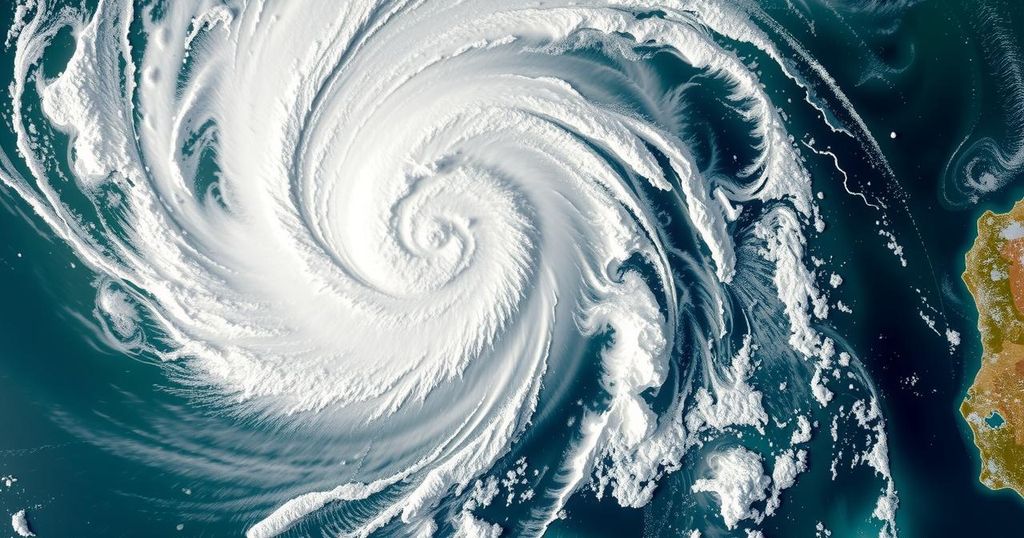Impact of Cyclone Chido on Northern Mozambique: Assessment and Implications

Cyclone Chido struck northern Mozambique, affecting 181,554 individuals, with 75% being women and children. The storm destroyed over 36,000 homes and worsened the living conditions of many displaced families. The area was already struggling due to ongoing conflict and economic difficulties, heightening the need for relief efforts.
Tropical Cyclone Chido recently struck northern Mozambique, causing widespread devastation in the provinces of Cabo Delgado, Nampula, and Niassa. The cyclone’s severe winds and torrential rains have resulted in substantial damage, leaving approximately 181,554 individuals affected, predominantly women and children. Remarkably, over 36,000 homes were completely or partially destroyed, with many communities left in ruins. This natural disaster compounded the challenges faced by regions already burdened by conflict and displacement, with many families losing what little they had managed to rebuild after previous crises.
Cyclone Chido made landfall over the weekend, exacerbating the precarious situation in northern Mozambique. The affected areas were already home to approximately 300,000 people who had been forcibly displaced due to conflict. Following the cyclone’s destruction of infrastructure, including homes and essential services, the situation for the residents becomes increasingly dire. The National Institute for Disaster Management (INGD) is actively assessing the damage, although the full impact of the cyclone remains uncertain.
In summary, Cyclone Chido has inflicted severe damage on northern Mozambique, affecting over 181,000 individuals and displacing many families already suffering from years of conflict and economic hardship. This cyclone highlights the vulnerability of the region and the urgent need for humanitarian assistance to rebuild and support the impacted communities.
Original Source: reliefweb.int








